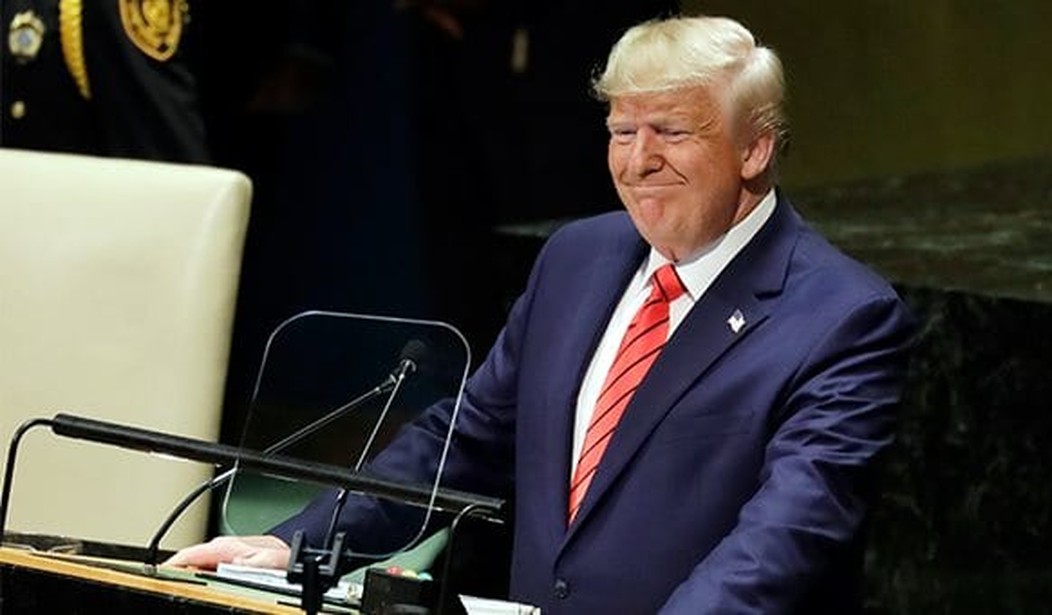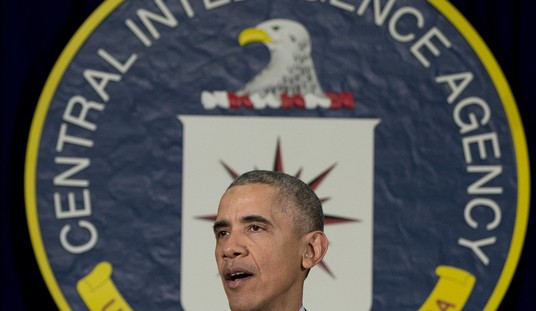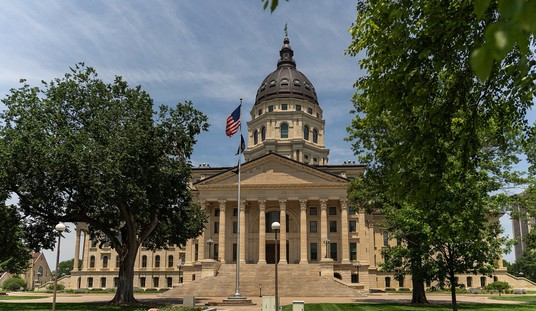
Speaker of the House Nancy Pelosi, D-Calif., departs the Capitol en route to a speaking event in Washington, Tuesday, Sept. 24, 2019. Pelosi will meet with her caucus later as more House Democrats are urging an impeachment inquiry amid reports that President Donald Trump pressured Ukraine to investigate former Vice President Joe Biden and his family. (AP Photo/J. Scott Applewhite)
Over the past few days, a large dust up has surrounded a report by The Federalist’s Sean Davis. In it, he details how the form used to file whistle-blower complaints was altered just before the current whistle-blower submission involving Trump and Ukraine. You can find the original report on that at this link.
The gist of the claim was never that the “law” was changed, although that’s how the left spun it (and many on the right from certain outlets). What was being exposed was that the ICIG originally required first hand information or otherwise verifiable second hand information for a complaint to be seen as an urgent and passed to Congress. The regulations governing such also require that. The whistle-blower’s complaint clearly did not provide either of those things. Yet, the form was changed to remove those requirements in August just before he turned it in and the ICIG attempted to give it to Congress anyway.
Because arguing in good faith is not a thing with our media, they immediately rushed out to proclaim Sean was lying anyway. A rebuttal memo put out by the ICIG was used as proof.
A very detailed statement from the IC IG that shows how bogus some recent claims have been –> https://t.co/BzUpT0b6h1
— Glenn Kessler (@GlennKesslerWP) September 30, 2019
The problem is that the ICIG memo actually backs up what Sean reported and anyone claiming otherwise is adding things to the mix that weren’t there in the first place.
The Federalist reported Friday that the form the whistleblower used differed from an earlier version, which explicitly stated secondhand information cannot be relayed out of the IG’s office. Last night the IG confirmed that this change took place. 2/
— Tom Elliott (@tomselliott) October 1, 2019
However, that same act DOES prohibit the IG from relaying the report to Congress if that secondhand info hasn’t been corroborated with direct evidence. 4/
— Tom Elliott (@tomselliott) October 1, 2019
The previous language helped ensure the IG wouldn’t be sent on wild goose chases, as the law compels the IG to make a determination within 14 days on whether the whistleblower report “appears credible.” 6/
— Tom Elliott (@tomselliott) October 1, 2019
https://twitter.com/beyondreasdoubt/status/1178872758874378246
To answer the question above, yes, the ICIG just did admit that. Malor apparently doesn’t realize that if the whistle-blower used the 2018 form, then the note that first hand info is required for a credibly “urgent” complaint was there for all to see. In other words, the form was changed after the fact, allowing the ICIG to claim it was proper for him to pass the claim to Congress.
Here’s Undercover Huber’s thread as well, which I won’t link entirely to, but you can click the below tweet to read it all. He goes hard at the media’s talking points.
Now that the ICIG has released an official statement, the “IG whistleblower form” controversy is very simple to explain
And the fact most of the media are obscuring and lying about it instead is very revealing
THREAD
— Undercover Huber (@JohnWHuber) October 1, 2019
Predictably, even some media outlets managed to admit the issues inadvertently but still pushed a certain narrative.
As defined in the ICWPA, the ICIG’s duties include an obligation “to initiate and conduct independent investigations” (U.S.C. §3033(e)). Further, he “shall determine whether the complaint or information appears credible. Upon making such a determination, the Inspector General shall transmit to the Director a notice of that determination, together with the complaint or information” (U.S.C. §3033(k)(5)(B)).
Ironically, the Daily Beast article inadvertently destroys its own claim that this is a “false story.” In their zeal to dismiss the importance of the altered requirement for first-hand knowledge, the article explains that first-hand evidence is the threshold to determine what is “credible” under the statute: “Though the text is confusingly drafted—which may be why the entire preamble was canned—a careful reading shows it’s not erecting a new hurdle for filing a whistleblower complaint, but rather describing the type of evidence the IC IG has to gather to judge the complaint ‘credible’ at the end of its 14-day investigation.”
The most infuriating part of this is seeing so many “conservatives” rush to bash Sean Davis and Mollie Hemingway (who backed him up) when nothing they said was incorrect. The original report was that the form was changed and that the ICIG refused to give a reason. That was true, 100%. The dividing line among the right continues to be the majority who see the past and present corruption within the IC and those who reflexively run to defend them at all costs.
If some want to stick their head in the sand and pretend all of this is just a coincidence on top of the mountain of other coincidences, that’s their prerogative. The rest of us aren’t bound to give any of the intel community or otherwise the benefit of the doubt.
Enjoying the read? Please visit my archive and check out some of my latest articles.
I’ve got a new twitter! Please help by following @bonchieredstate.














Join the conversation as a VIP Member